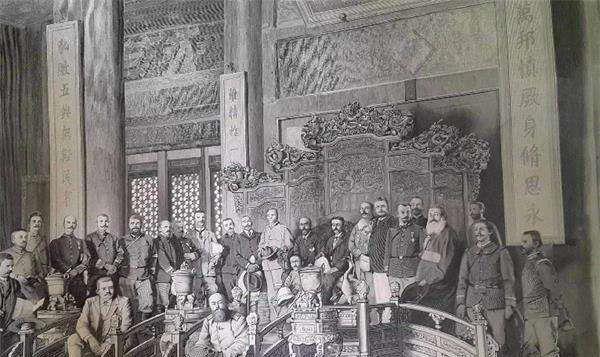After the Boxer Rebellion in 1900, which led to the Eight-Nation Alliance invading Beijing, Cixi staged a farce and fled west in a hurry, returning to Beijing for more than a year.

The Qing government had realized that if it did not reform, it might be destroyed at any time, and the local powerful factions also constantly urged the imperial court to carry out reforms, in this case, there were more and more voices supporting reform within the imperial court, so Cixi announced the implementation of the new policy.
To this end, Cixi specially set up a "Supervision and Administration Office" headed by Yi Li, the Prince of Qing, and appointed officials to go abroad to investigate. The content of the reform involves all aspects, far more in-depth than during the period of the Penghu Reform Law.
The qing government also abolished the imperial examination, opened schools, and sent students abroad, which was a subversive reform in the history of education; the economy also began to encourage industry and reward the establishment of industrial and commercial enterprises. Of course, the Qing government made some political changes to the ruling apparatus and began to prepare for the constitution.
This reform is really picturesque in terms of content, but in fact, it is very troublesome to implement. Any reform in history is bound to be bloody and tearful, and it is bound to hurt the interests of some people, so the resistance encountered is not small.
Reform needs money, the imperial court certainly does not, and it still owes a bunch of debts, so it can only be apportioned to the common people again, and the people can no longer afford it. What's more, corruption is rampant, and many people become officials in order to loot the people's fat and people's ointment.
I have to say that at that time, ordinary people had no interest in this reform, and the deeper impact on them was probably the abolition of the imperial examination, and it should be known that at that time, there were only a few people who could study abroad, and there were still very few people who had contact with advanced Western science, and most of the people only asked for enough to eat. Therefore, the reform of the New Deal lacks a social mass base.
Of course, objectively speaking, the New Deal at the end of the Qing Dynasty is still meaningful, although it is greatly discounted, but it still has a positive impact, and it cannot be ignored and erased.
It's just that the Qing government finally got the "imperial cabinet", which can be seen that it is not really to implement the constitutional monarchy, but to deceive itself and to deceive others. If the so-called constitution in the West is followed, the emperor basically has no real power, which is unacceptable to the Qing government.
The "Constitution-making" goes further than the "Gengzi New Deal," and it is a reform that requires real action, greater intensity, and more rapidity. But because of the result of the imperial cabinet, the constitutional monarchy of the Qing court was ridiculed as a fraud.
In the thirty-fourth year of Guangxu (August 1908), the Outline of the Constitution of the King's Republic of China finally appeared. There is very little else to say here, but the power of the emperor is expressed in great detail. This, coupled with the nine-year period for the preparation of the constitution, is very disappointing.
However, objectively speaking, the constitution is different from other reforms, and it mainly involves politics and power, so whether it is the Manchu Qing court, or the constitutionalists and reformists, a fierce debate broke out. But as soon as the results came out, the constitutionalists despaired and the revolutionaries became even more determined. The Qing government's desire to block the mouths of the yo-yo crowd was in vain.